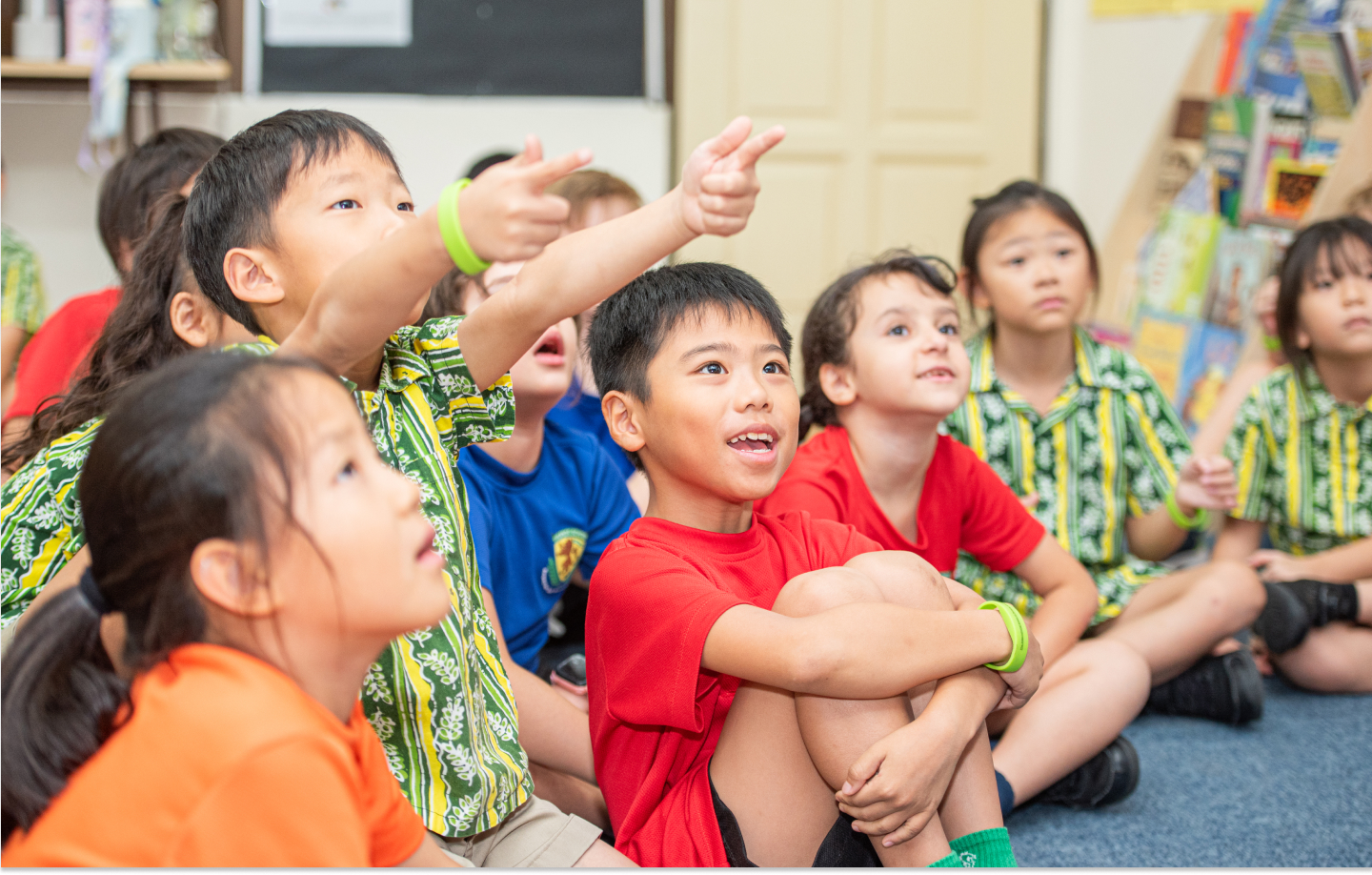
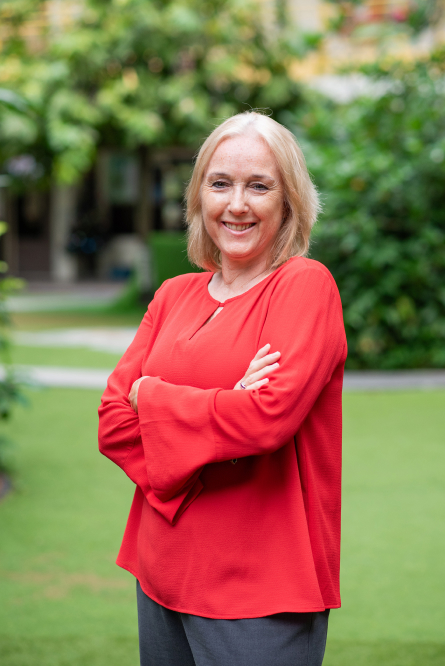
Head of Primary’s Welcome:
Welcome to Uplands Primary
As the Head of Primary at The International School of Penang (Uplands), it is my pleasure to welcome you to a vibrant and inclusive school community, home to over 40 nationalities. We take pride in embracing diversity and fostering a love of learning both inside and outside the classroom.
As an IBPYP school, we nurture caring, inquisitive, and active learners through an inquiry-based curriculum. Students build conceptual understanding by exploring and applying knowledge across all subjects, with opportunities to set goals and track their own progress. Our programme extends beyond academics, encouraging growth in the Arts, Sports and Service, culminating in the Year 6 Exhibition—a collaborative inquiry into real-world challenges.
At Uplands Primary, we strive to meet every student’s needs in a warm, supportive environment guided by our motto: Respect for Self. Respect for Others. Our values—Respect, Integrity, Collaboration, Resilience, Balance and Diversity—are woven into every aspect of school life, helping students grow into well-rounded, global citizens.
Head of Primary
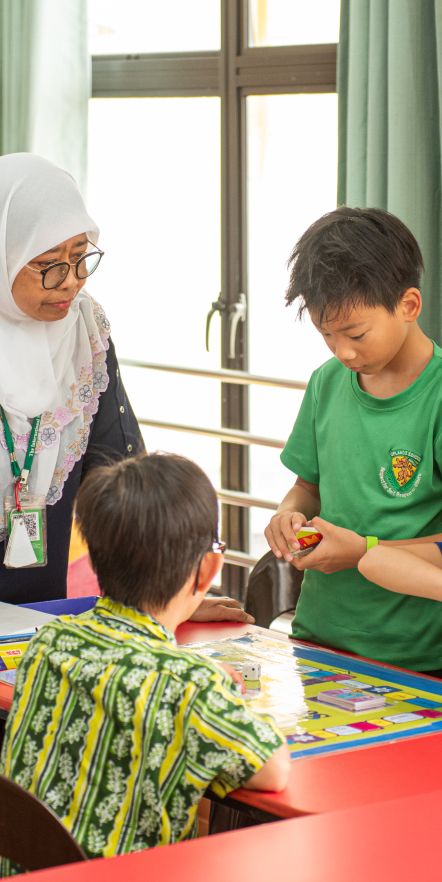
Student-centred learning
The PYP framework provides an ideal foundation for children to become successful, lifelong learners by developing their social and emotional well-being and independence. As they take responsibility for their own learning their international mindedness and understanding of the world and their ability to function effectively within it grows.
Through the IBPYP learner profiles our PYP learners strive to be:
INQUIRERS
They nurture their curiosity, developing skills for inquiry and research. They know how to learn independently and with others. They learn with enthusiasm and sustain their love of learning throughout life.
KNOWLEDGEABLE
They develop and use conceptual understanding, exploring knowledge across a range of disciplines. They engage with issues and ideas that have local and global significance.
THINKERS
They use critical and creative thinking skills to analyse and take responsible action on complex problems. They exercise initiative in making reasoned, ethical decisions.
COMMUNICATORS
They express themselves confidently and creatively in more than one language and in many ways. They collaborate effectively, listening carefully to the perspectives of other individuals and groups.
PRINCIPLED
They act with integrity and honesty, with a strong sense of fairness and justice, and with respect for the dignity and rights of people everywhere. They take responsibility for their actions and the consequences.
OPEN-MINDED
They critically appreciate their own cultures and personal histories, as well as the values and traditions of others. They seek and evaluate a range of points of view, and they are willing to grow from the experience.
CARING
They show empathy, compassion and respect. They have a commitment to service, and they act to make a positive difference in the lives of others and in the world around us.
RISK-TAKERS
They approach uncertainty with forethought and determination; they work independently and cooperatively to explore new ideas and innovative strategies. They are resourceful and resilient in the face of challenges and change.
BALANCED
They understand the importance of balancing different aspects of their lives – intellectual, physical, and emotional to achieve well-being for themselves and others. They recognize their interdependence with other people and with the world in which they live.
REFLECTIVE
They thoughtfully consider the world and their own ideas and experience. They work to understand their strengths and weaknesses in order to support their learning and personal development
The Primary Years Programme (IB PYP)
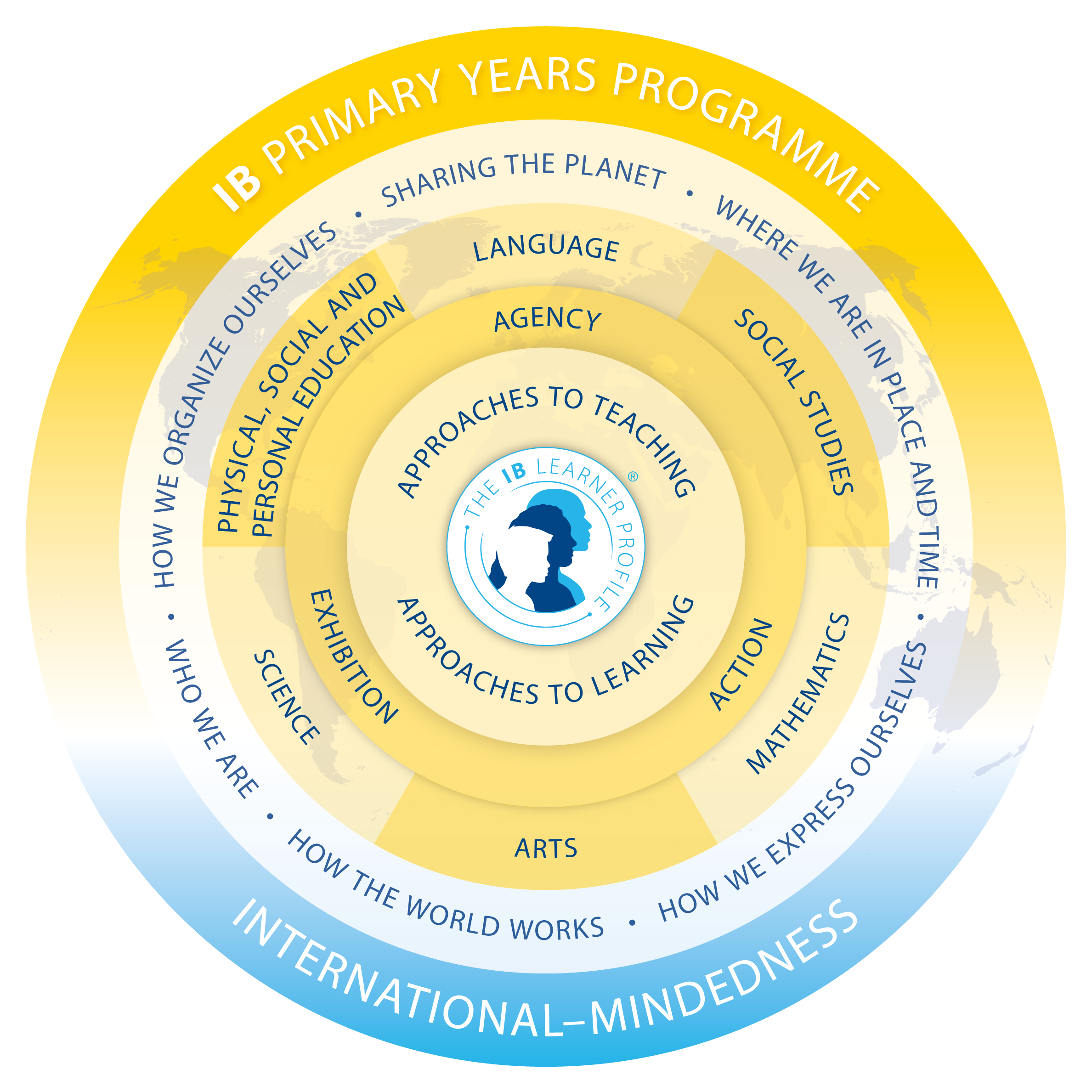
The curriculum of Uplands Primary School is based on the International Baccalaureate Primary Years Programme (PYP). It is an international curriculum framework designed for all children between the ages of 4 and 12 years.
The PYP nurtures and develops young students as caring, active participants in a lifelong journey of learning. It provides the knowledge, concepts, skills, personal attributes and the capacity to take action, all of which younger students need to equip them for successful lives, both now and in the future. Through its inquiry-led, transdisciplinary framework, the PYP challenges students to think for themselves and take responsibility for their learning as they explore local and global issues and opportunities in real-life contexts.
In the PYP there is a commitment to a concept-driven curriculum as a means of supporting inquiry. The concepts are central to the curriculum and are in the form of key questions that are broad and open-ended. The key concepts of form, function, causation, change, connection, perspective and responsibility help teachers and students consider different ways of thinking and learning about the world and act as a provocation to extend and deepen student inquiries.
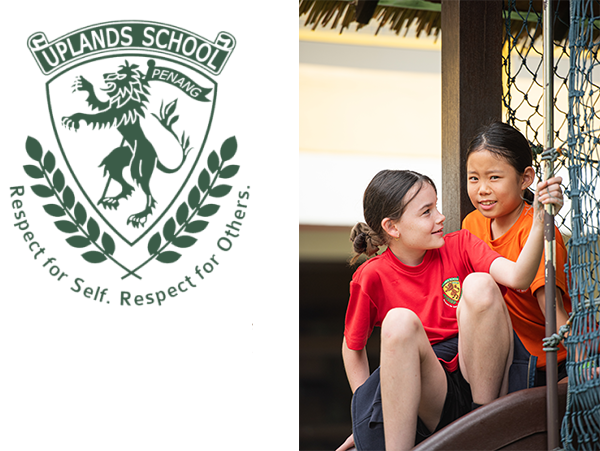
Teaching and Learning
While there is no formula that will guarantee learning for every student in every context, there is extensive, well-documented evidence about the kinds of teaching approaches that consistently have a positive impact on student learning. This evidence tells us that students learn best when teachers:
- Create a supportive learning environment
- Encourage reflective thought and action
- Enhance the relevance of new learning
- Facilitate shared learning
- Make connections to prior learning and experience
- Provide sufficient opportunities to learn
- Inquire into the teaching–learning relationship.
Creating a Supportive Learning Environment
Learning is inseparable from its social and cultural context. Students learn best when they feel accepted, when they enjoy positive relationships with their fellow students and teachers, and when they can be active, visible members of the learning community. Our teachers foster positive relationships that are caring, inclusive, non-discriminatory, and cohesive. They also build good relationships with the wider school community, working with parents and caregivers as key partners who have unique knowledge of their children and countless opportunities to advance their children’s learning. Our teachers attend to the cultural and linguistic diversity of all their students. The classroom culture exists within and alongside many other cultures, including the cultures of the wider school and the local community.
Encouraging Reflective Thought and Action
Students learn most effectively when they develop the ability to stand back from the information or ideas that they have engaged with and think about them objectively. Reflective learners assimilate new learning, relate it to what they already know, adapt it for their own purposes, and translate thought into action. Over time, they develop their creativity, their ability to think critically about information and ideas, and their metacognitive ability (that is, their ability to think about their own thinking). Teachers encourage such thinking when they design tasks and opportunities that require students to critically evaluate the material they use and consider the purposes for which it was originally created.
Enhancing the Relevance of New Learning
Students learn most effectively when they understand what they are learning, why they are learning it, and how they will be able to use their new learning. Our teachers stimulate the curiosity of their students, require them to search for relevant information and ideas, and challenge them to use or apply what they discover in new contexts or in new ways. They look for opportunities to involve students directly in decisions relating to their own learning. This encourages them to see what they are doing as relevant and to take greater ownership of their own learning.
Facilitating Shared Learning
Students learn as they engage in shared activities and conversations with other people, including family members and people in the wider community. Teachers encourage this process by cultivating the class as a learning community. In such a community, everyone, including the teacher, is a learner; learning conversations and learning partnerships are encouraged; and challenge, support, and feedback are always available. As they engage in reflective discourse with others, students build the language that they need to take their learning further.
Making Connections to Prior Learning and Experience
Students learn best when they are able to integrate new learning with what they already understand. Our teachers deliberately build on what their students know and have experienced, they maximise the use of learning time, anticipate students’ learning needs, and avoid unnecessary duplication of content. Teachers can help students to make connections across learning areas as well as to home practices and the wider world.
Providing Sufficient Opportunities to Learn
Students learn most effectively when they have time and opportunity to engage with, practise, and transfer new learning. This means that they need to encounter new learning a number of times and in a variety of different tasks or contexts. It also means that when curriculum coverage and student understanding are in competition, the teacher may decide to cover less but cover it in greater depth. Appropriate assessment helps the teacher to determine what “sufficient” opportunities mean for an individual student and to sequence students’ learning experiences over time.
Student Leadership
Student leadership in the primary school consists of Primary Leaders and student council
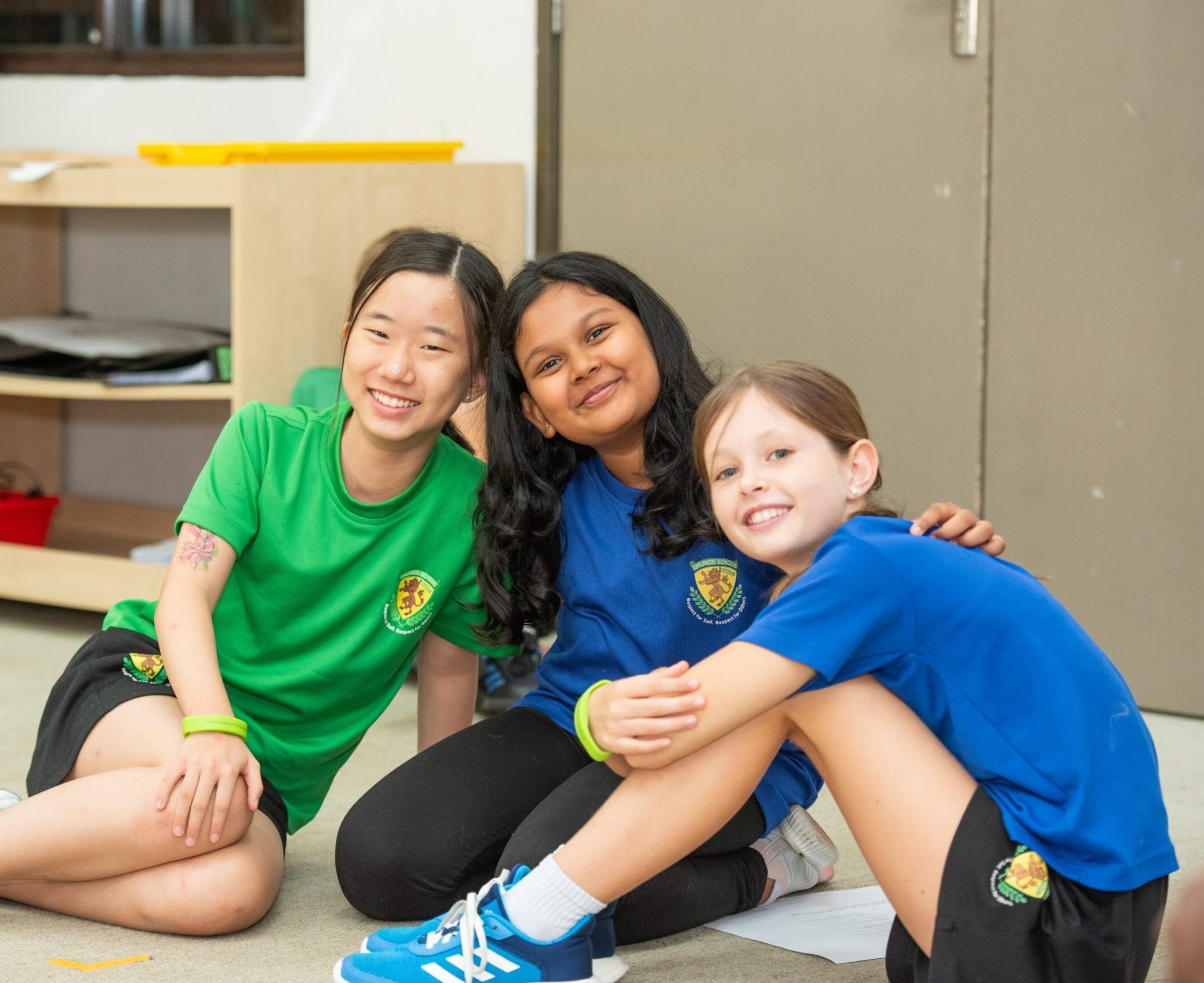
Primary Leaders
These are students from the upper end of the Primary school, usually Year 5 and Year 6. These students want to grow in their leadership skills, contribute to the community and strive for excellence at Uplands.
The students are chosen for their attitude and willingness to make things better for all students at Uplands and have duties that involve leading the weekly Primary assemblies, organising events for the whole Primary school and liaising with the Secondary prefects in whole school projects.
Student Council
The student council are students from across the whole range of ages in the Primary school from Year 2 – Year 6. These are student representatives that are selected by their peers and teachers
Purpose:
- To promote and increase Student’s Voice and Agency within PYP decision-making to really value ideas/feedback so they are heard and enacted upon.
- To encourage and support action as a result of decision making.
- To widen and develop leadership participation opportunities for all PYP age groups.
Sustainable. Development. Activities.
Specialised Classes
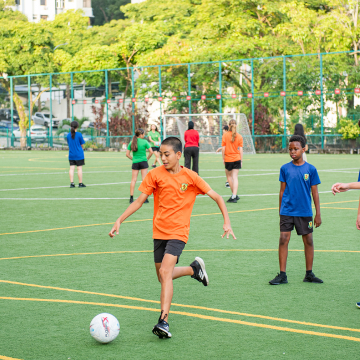
PE
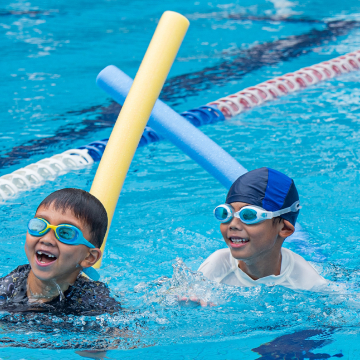
Swimming
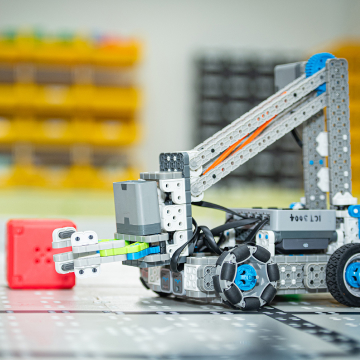
STEAM
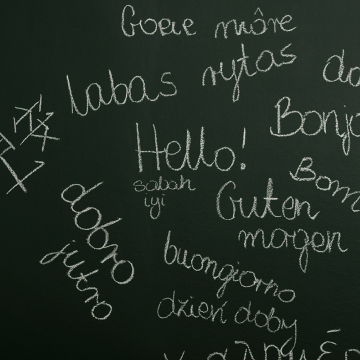
Modern Foreign languages (Bahasa and Mandarin)
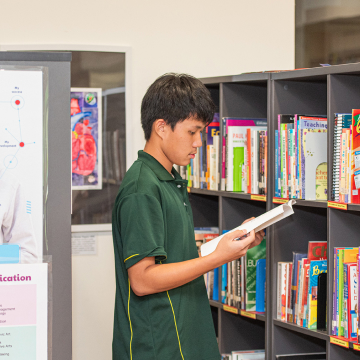
Library lessons
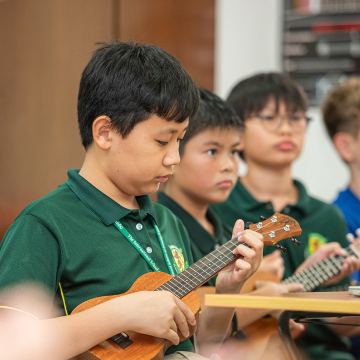
Drama/ Music
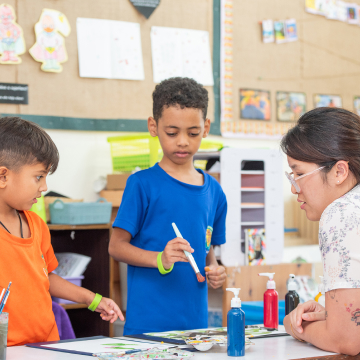
Visual Art
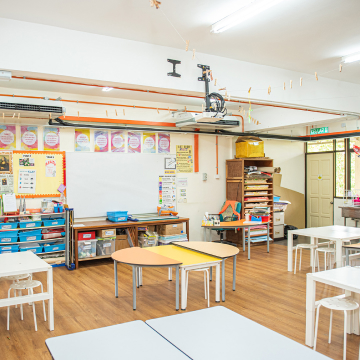
EAL (English as an Additional Language)
Student Life
Student class numbers start from approx 15
Reception
& Year 1
18 in
Year 2 to
Year 4
Up to a max of 24 in
Year 5 &
Year 6
What does Inquiry through play look like?
What does Inquiry through play look like?
Whilst we are all familiar with the idea of play, it can be difficult to agree on exactly what it looks like.
5 key characteristics of play are as follows:
Play is Meaningful
Play is
Meaningful
Children play to make sense of the world around them and to find meaning in an experience by connecting it to something already known.
Through play, children express and understand their understanding of their experiences.
Play is Joyful
Play is Joyful
Play may have its frustrations and challenges, but the overall feeling is one of enjoyment, motivation, thrill, and pleasure.
Play is
Actively
Engaging
Play is Actively Engaging
Watch children playing, and you will usually see that they become deeply involved, often coming to physical, mental, and verbal engagement.
Play is Iterative
Play is Iterative
Play is not static. Children play to practice skills, try out possibilities, revise hypotheses, and discover new challenges, leading to deeper learning.
Play is Socially
Interactive
Play is Socially Interactive
Play allows children to communicate ideas and to understand others through social interaction, paving the way to build deeper understanding and more powerful relationships.


